In the dynamic world of logistics and transportation, selecting the right type of semi-trailer is pivotal for ensuring efficiency, safety, and profitability. Among the myriad options available, dovetail trailers and flat trailers stand out as popular choices, each offering distinct advantages tailored to specific transportation needs. At CarMax Trailer, we understand the critical decision-making process involved in choosing the perfect trailer for your operations. This comprehensive comparison delves into the nuances of dovetail trailers versus flat trailers, guiding you to make an informed choice that aligns with your business objectives.
Understanding the Basics: Dovetail vs Flat Trailers
Before delving into the comparison, it’s essential to grasp the fundamental differences between dovetail and flat trailers.
What is a Dovetail Trailer?
A dovetail trailer is characterized by its extended, tapered tail, resembling the joint used in woodworking known as a dovetail. This design facilitates smoother and safer backing movements, reducing the risk of cargo shift and enhancing maneuverability in tight spaces. Dovetail trailers are typically enclosed, providing robust protection against environmental elements and theft, making them ideal for transporting high-value or sensitive goods.

What is a Flat Trailer?
In contrast, a flat trailer features a completely flat, open platform with no sides or roof. This design maximizes cargo space and allows for the transportation of oversized or irregularly shaped items that wouldn’t fit in an enclosed trailer. Flat trailers are incredibly versatile, accommodating a wide range of merchandise, from construction materials to agricultural products. Their open design also simplifies loading and unloading, especially for bulk items.
Key Factors in Comparing Dovetail and Flat Trailers
When choosing between a dovetail trailer and a flat trailer, several factors come into play. Below, we explore these factors in detail to assist you in making a well-informed decision.
1. Cargo Protection and Security
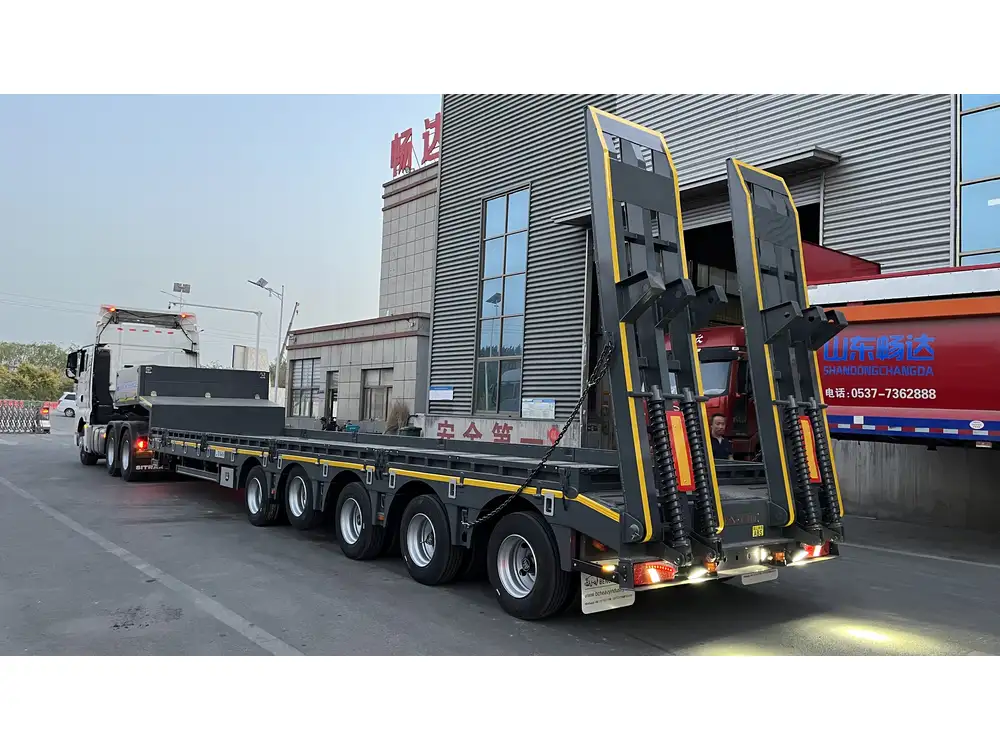
Dovetail Trailers:
- Enclosed Structure: Offers superior protection against weather elements, theft, and vandalism.
- Secure Loading: Locking mechanisms and solid walls prevent unauthorized access and ensure cargo remains intact during transit.
Flat Trailers:
- Open Design: Exposes cargo to external factors, requiring additional measures for protection, such as tarps or covers.
- Flexible Securing: While versatile, securing cargo effectively demands more effort to prevent shifting or damage.
2. Versatility and Load Capacity
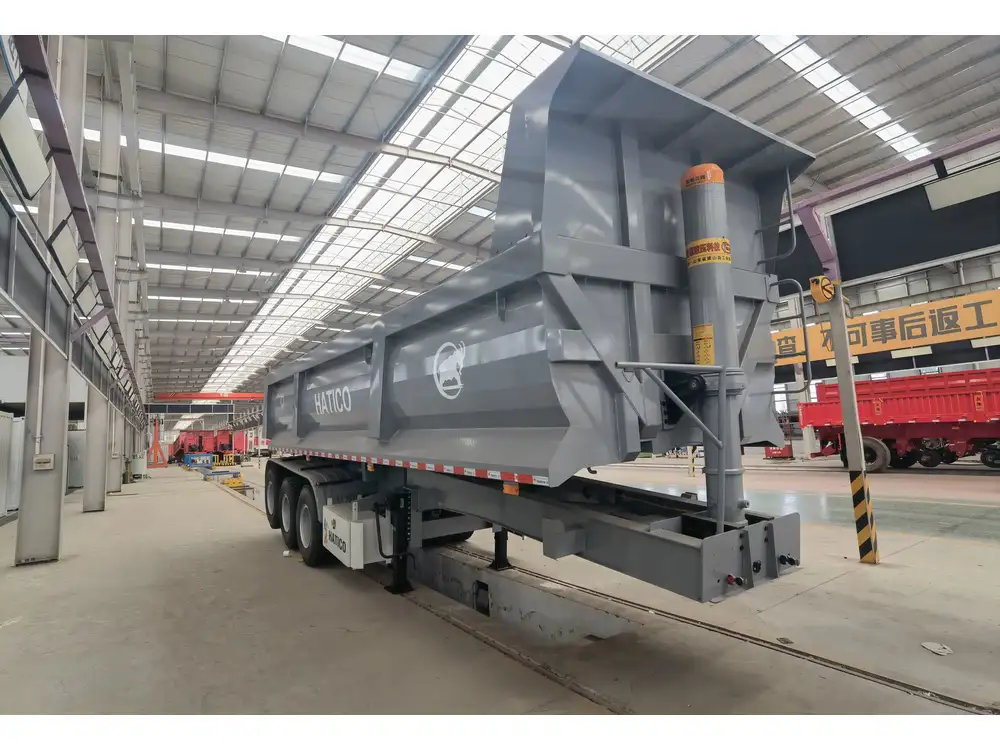
Dovetail Trailers:
- Balanced Load Distribution: The tapered design aids in distributing weight evenly, enhancing stability.
- Ideal for Standard Loads: Best suited for transporting goods that fit within the trailer’s enclosed space.
Flat Trailers:
- Maximum Payload: Generally offer higher load capacities due to the absence of sides, allowing for the transport of bulkier or heavier items.
- Adaptable Configuration: Can be customized with extensions, sideboards, or other accessories to accommodate various cargo types.
3. Maneuverability and Handling
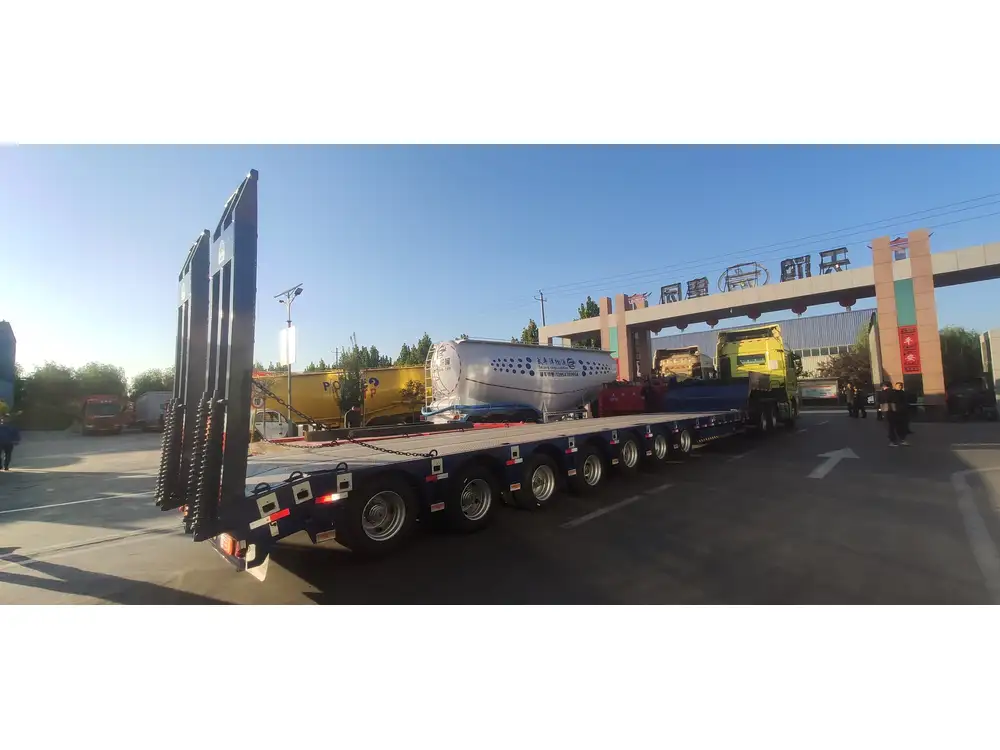
Dovetail Trailers:
- Enhanced Maneuverability: The extended tail improves the trailer’s pivot point, making it easier to navigate tight turns and reverse safely.
- Stable Handling: Balanced design reduces sway and enhances control, especially in challenging driving conditions.
Flat Trailers:
- Straightforward Handling: Simpler design translates to predictable handling, though maneuverability can be affected by the load’s size and distribution.
- Lower Sway Resistance: Open trailers may experience greater sway, requiring careful driving and possibly additional stabilization measures.
4. Cost Considerations
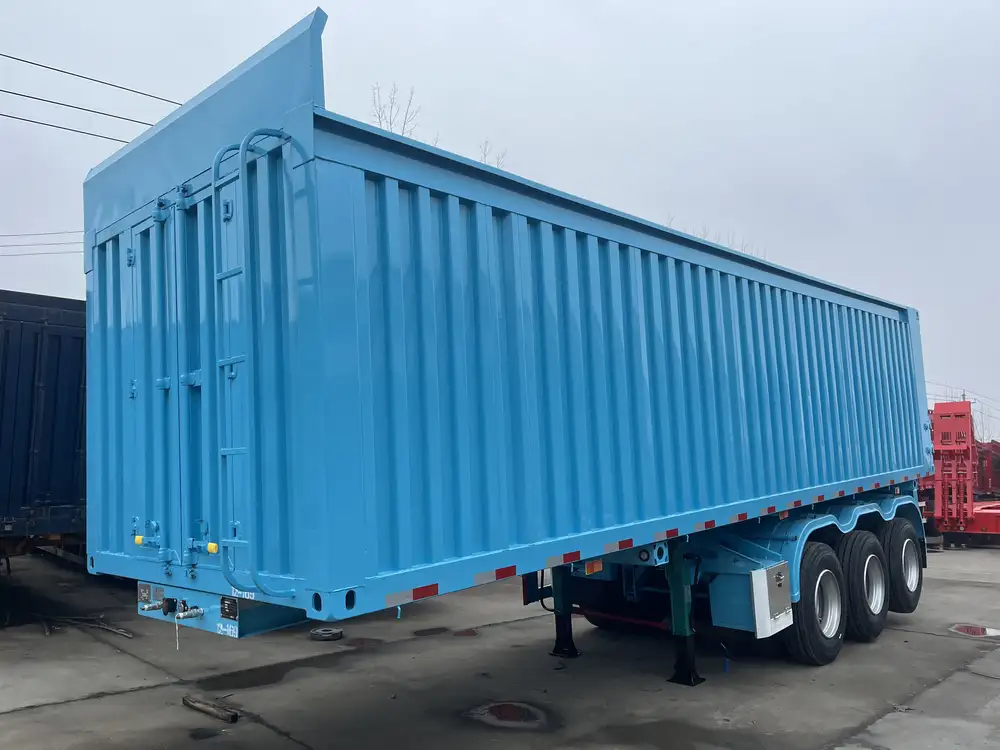
Dovetail Trailers:
- Higher Initial Investment: Enclosed trailers typically cost more due to their construction and added security features.
- Lower Operating Costs: Enhanced protection reduces the likelihood of cargo damage, potentially lowering insurance premiums and loss rates.
Flat Trailers:
- Cost-Effective Purchase: Generally less expensive upfront compared to enclosed trailers.
- Variable Operating Costs: Depending on the cargo, additional protective measures may increase overall expenses.
5. Maintenance and Durability
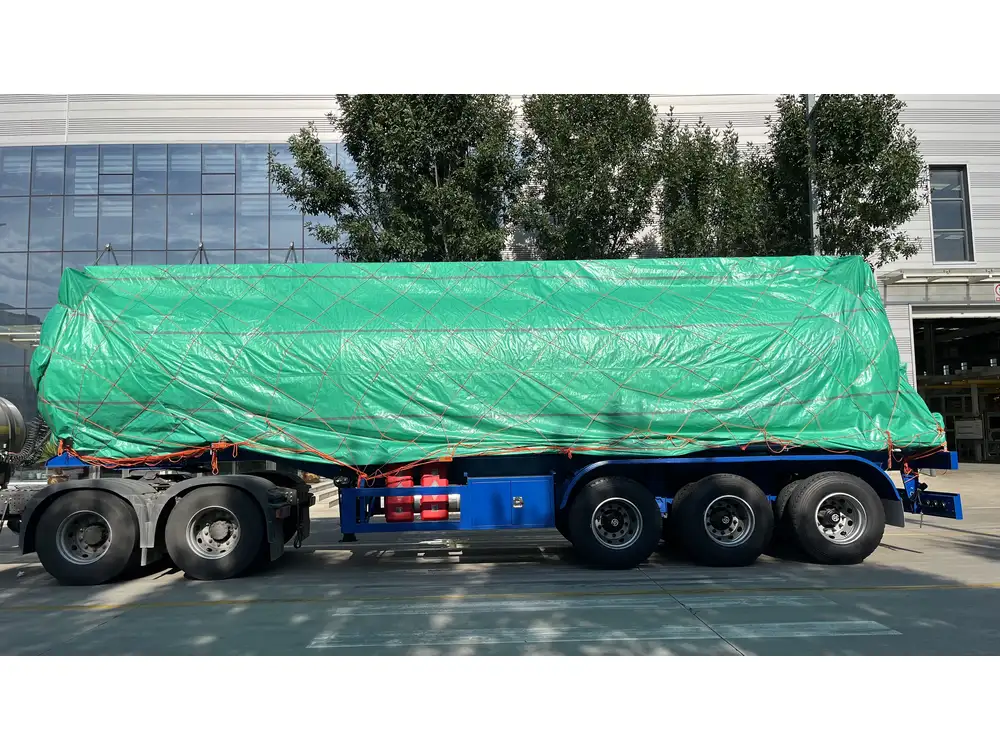
Dovetail Trailers:
- Robust Construction: Designed for durability, with materials that can withstand harsh conditions and frequent use.
- Regular Maintenance: Requires consistent upkeep to ensure the integrity of enclosed structures and security features.
Flat Trailers:
- Simpler Maintenance: Fewer components mean easier and often less costly maintenance.
- Exposure to Elements: Open design may lead to quicker wear and tear from environmental exposure, necessitating more frequent inspections.
Comparative Table: Dovetail Trailer vs Flat Trailer
| Feature | Dovetail Trailer | Flat Trailer |
|---|---|---|
| Design | Enclosed with tapered tail | Open, completely flat platform |
| Cargo Protection | High – shields from weather and theft | Moderate – requires additional covering |
| Load Capacity | Balanced, suitable for standard loads | High – accommodates bulkier/heavier items |
| Versatility | Best for sensitive or high-value goods | Highly versatile for various cargo types |
| Maneuverability | Excellent in tight spaces and reversing | Good, but dependent on load distribution |
| Initial Cost | Higher | Lower |
| Operating Cost | Potentially lower due to cargo protection | Variable, based on protective measures |
| Maintenance | Requires regular upkeep of enclosed areas | Simpler maintenance, higher exposure wear |

Ideal Use Cases for Dovetail and Flat Trailers
Understanding the specific scenarios where each trailer type excels can further aid in making the right choice.
Dovetail Trailers Are Best For:
- Transporting Perishable Goods: Enclosed design maintains temperature and protects against contamination.
- High-Value Items: Enhanced security features safeguard against theft and damage.
- City Deliveries: Improved maneuverability is advantageous for frequent stops and tight urban routes.
- Specialized Cargo: Items requiring protection from the elements or tampering.
Flat Trailers Are Best For:
- Construction Materials: Easy transport of bulk items like lumber, steel beams, and machinery.
- Agricultural Products: Ideal for moving large quantities of produce, equipment, or feed.
- Event Logistics: Transporting stages, seating, and other large-scale event components.
- Oversized or Irregularly Shaped Loads: Flexibility to accommodate non-standard cargo dimensions.

Choosing CarMax Trailer for Your Transportation Needs
At CarMax Vehicle, we pride ourselves on delivering top-tier semi-trailers tailored to meet diverse logistical demands. Whether you opt for a dovetail trailer or a flat trailer, our offerings are engineered for durability, efficiency, and optimal performance.
Why Choose CarMax Dovetail Trailers?
- Superior Craftsmanship: Built with high-quality materials ensuring longevity and reliability.
- Advanced Security Features: Integrated locking systems and reinforced structures to protect your cargo.
- Customizable Options: Tailor the trailer’s specifications to match your unique transportation requirements.
Why Choose CarMax Flat Trailers?
- Maximum Versatility: Adaptable configurations to handle a wide range of cargo types and sizes.
- Enhanced Load Capacity: Designed to carry substantial weights without compromising stability.
- Ease of Integration: Seamlessly pairs with various truck models and other transportation equipment.

Step-by-Step Analysis: Making the Right Choice
Selecting between a dovetail trailer and a flat trailer involves a methodical approach, considering various facets of your transportation needs.
Step 1: Assess Your Cargo Requirements
Evaluate the nature, size, and value of the goods you intend to transport. High-value or sensitive items may benefit from the protection of a dovetail trailer, while bulkier, heavier items may be better suited for a flat trailer.
Step 2: Consider Operational Environments
Analyze the typical driving conditions and environments your trailers will navigate. Urban settings with tight spaces may favor the maneuverability of dovetail trailers, whereas open highways could efficiently accommodate flat trailers carrying large loads.

Step 3: Evaluate Cost Implications
Balance the initial investment against long-term operating costs. While dovetail trailers might require a higher upfront cost, their protective features could reduce overall expenses related to cargo loss or damage.
Step 4: Factor in Maintenance and Durability
Consider the maintenance requirements and expected lifespan of each trailer type. Choose a trailer that aligns with your capacity for regular upkeep and offers durability suited to your operational demands.
Step 5: Seek Customization and Support
Partner with a reputable manufacturer like CarMax Vehicle to explore customizable options that cater specifically to your needs, ensuring the trailer you select serves your business effectively.

Enhancing Efficiency with CarMax Trailer Solutions
Optimizing your transportation operations extends beyond selecting the right trailer. At CarMax Trailer, we offer a suite of services and features designed to enhance your logistical efficiency:
- Technical Support: Expert guidance in choosing and maintaining your trailers.
- Innovative Designs: Continuous improvement and innovation to meet evolving transportation trends.
- Comprehensive Warranty: Assurance of quality and reliability with robust warranty options.
Conclusion: Making an Informed Decision
Choosing between a dovetail trailer and a flat trailer is a strategic decision that significantly impacts your transportation efficiency and operational costs. By carefully evaluating your cargo requirements, operational environments, and budget constraints, you can select the trailer type that best aligns with your business objectives. CarMax Vehicle stands ready to support you with high-quality, customizable trailer solutions designed to meet the diverse needs of today’s logistics landscape.
Investing in the right trailer not only enhances your transportation capabilities but also ensures the safety and integrity of your cargo, fostering trust and reliability with your clients. Whether you prioritize protection and security with a dovetail trailer or seek the versatility and capacity of a flat trailer, CarMax Trailer provides the expertise and products to drive your business forward.
Frequently Asked Questions (FAQs)
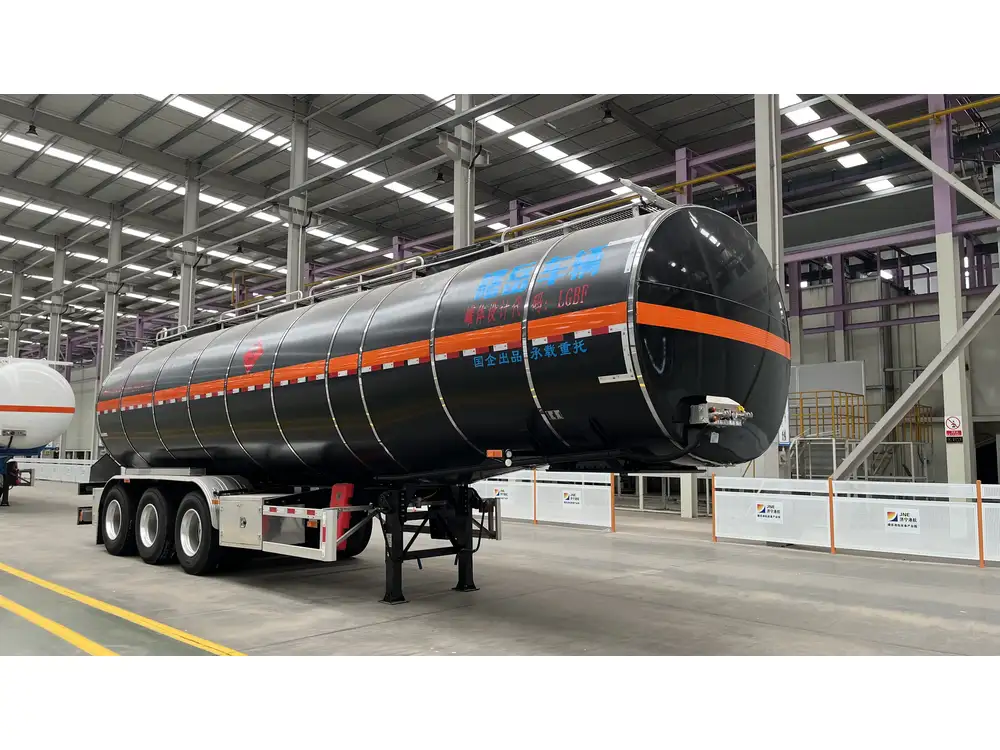
1. What are the main advantages of a dovetail trailer over a flat trailer?
Dovetail trailers offer superior cargo protection due to their enclosed design, enhanced security features, and improved maneuverability in tight spaces, making them ideal for transporting high-value or sensitive goods.
2. When should I choose a flat trailer instead of a dovetail trailer?
Flat trailers are preferable when transporting bulkier, heavier, or irregularly shaped items that require maximum load capacity and versatility. They are also suitable for industries like construction and agriculture.
3. Can CarMax Trailer customize trailers to fit specific needs?
Absolutely. At CarMax Vehicle, we offer customizable trailer options to match your unique transportation requirements, ensuring optimal performance and efficiency.

4. How do maintenance requirements differ between dovetail and flat trailers?
Dovetail trailers generally require more regular maintenance to preserve their enclosed structures and security features, while flat trailers are simpler to maintain but may need more frequent inspections due to their exposure to environmental elements.
5. Are dovetail trailers more expensive to operate in the long run?
While dovetail trailers may have a higher initial purchase cost, their enhanced protection can lead to lower operating costs by reducing the risk of cargo damage and theft, potentially offsetting the initial investment over time.



